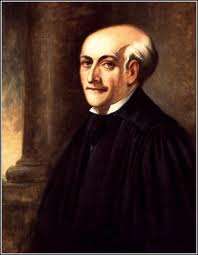The Volokh Conspiracy
Mostly law professors | Sometimes contrarian | Often libertarian | Always independent
Today in Supreme Court History: November 25, 1757
11/25/1757: Henry Brockholst Livingston's birthday. He dissented in the property law classic, Pierson v. Post (NY 1805).

Editor's Note: We invite comments and request that they be civil and on-topic. We do not moderate or assume any responsibility for comments, which are owned by the readers who post them. Comments do not represent the views of Reason.com or Reason Foundation. We reserve the right to delete any comment for any reason at any time. Comments may only be edited within 5 minutes of posting. Report abuses.
Please to post comments


Roman Catholic Diocese of Brooklyn v. Cuomo, 592 U.S. 14 (decided November 25, 2020): in a 5 - 4 vote, Court grants stay on Free Exercise grounds of Covid-19 executive order limiting church attendance to ten persons in red zones or 25 persons in orange zones; less restrictive alternatives available
Yates v. United States, 355 U.S. 66 (decided November 25, 1957): refusal to give names of Communist Party members results in only one conviction for contempt even though question was asked and refusal to answer ten times (in the more important decision in this case, the Court held that the First Amendment restricts Smith Act convictions to advocacy of specific overthrow actions, not overthrow as a general principle, 354 U.S. 298)
Saxbe v. Bustos, 419 U.S. 65 (decided November 25, 1974): ruling against Farmworkers Union and holding that INS regulations permit aliens to cross border for daily work with only a green card and without need of certification from the Secretary of Labor
Henry Brockholst Livingston had a respectable legal career before becoming a justice. He overall had an eventful life, including service in the Revolutionary War, surviving an assassination attempt, and killing a man in a duel.*
Brock (which I assume was his nickname) also had some important connections, including being a classmate of James Madison.
https://history.nycourts.gov/figure/henry-brockholst-livingston/
He was a counsel in the landmark case of Rutgers v. Waddington (1784) along with Alexander Hamilton. The case was an early precedent for the principle of judicial review. Marbury v. Madison did not come into the existence akin to Athena born fully grown out of the head of Zeus.
Justice Livingston followed Chief Justice Marshall’s lead while being praised for his collegiality and scholarship.
==
* The same place where Burr was killed.
https://joshblackman.com/blog/2013/11/25/fun-fact-author-of-pierson-v-post-future-supreme-court-justice-livingston-shot-a-federalist-in-a-duel/
People back then did not assume they could shoot a guy in the middle of NYC and get away with it. They went over to New Jersey.
Today's Supreme Court Order List has an interesting statement by the unusual tag team of Sotomayor (who wrote it) and Gorsuch.
"This case raises an important question that has divided the courts of appeals: whether the Takings Clause requires compensation when the government damages private property pursuant to its police power."
https://www.supremecourt.gov/orders/courtorders/112524zor_8m58.pdf
The Court has already held that there is no §1983 liability when a police officer in "hot pursuit" damages someone's property. Stanton v. Sims, 2013. Perhaps this is related.
Perhaps. Not quite a "hot pursuit" though.
Situation like this, there should be a means of compensation as policy even if it is not constitutionally required.
Hard for this layman to see why it wouldn't require compensation.
Fortunately James Bond was a British agent. If he was from a U.S. Agency subject to the Takings Clause, he would have bankrupted the federal government by now.